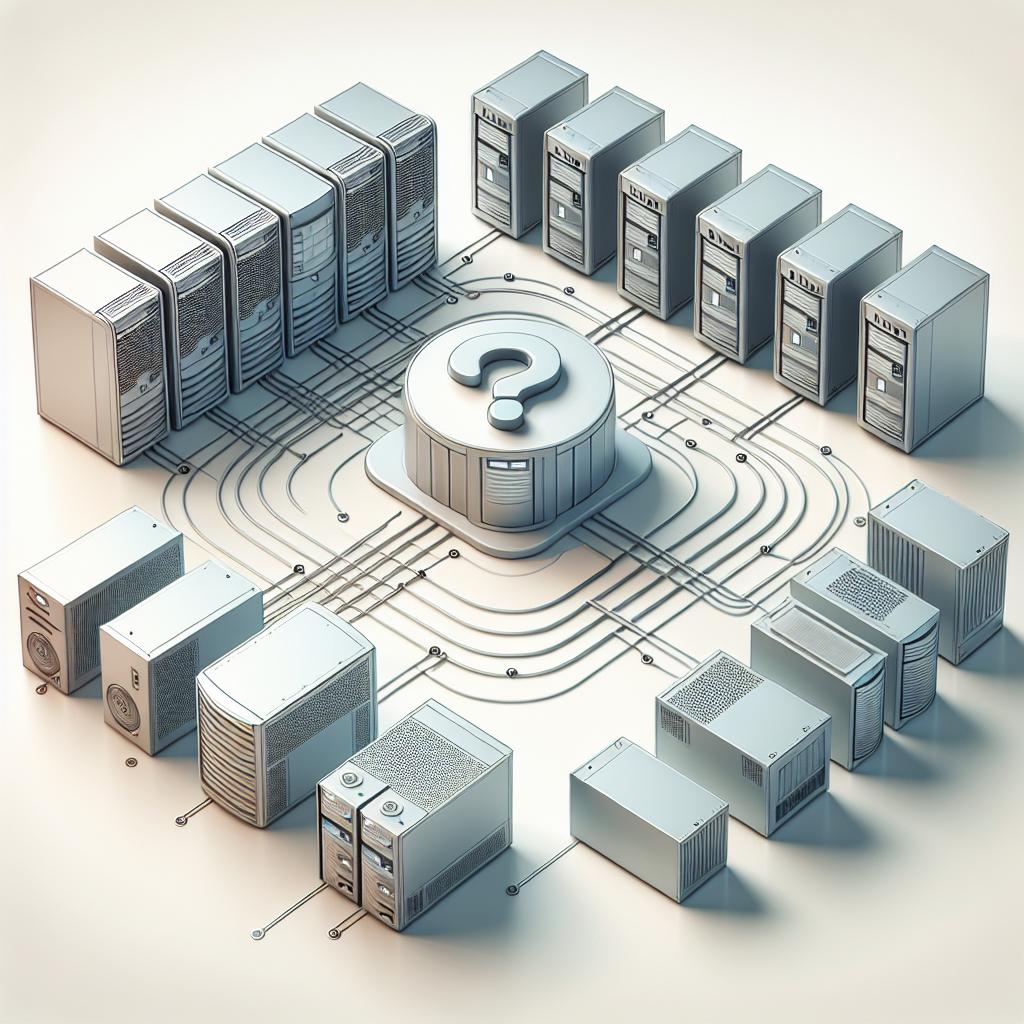Your cart is currently empty!
Tag: Solution

Choosing the Right Data Center Database Solution for Your Business Needs
In today’s digital age, data is king. Businesses rely on data to make informed decisions, understand customer behavior, and drive growth. As a result, the need for reliable and efficient data storage solutions has never been greater. Data center databases play a crucial role in storing, managing, and analyzing vast amounts of data. However, choosing the right data center database solution for your business needs can be a daunting task.There are many factors to consider when selecting a data center database solution, including scalability, performance, security, and cost. With so many options available on the market, it’s important to carefully evaluate your business requirements and choose a solution that aligns with your goals and objectives.
One of the first decisions you’ll need to make is whether to opt for a traditional relational database or a newer, more innovative solution such as a NoSQL database. Relational databases are structured and well-suited for handling complex queries and transactions, making them ideal for businesses with structured data and strict data integrity requirements. On the other hand, NoSQL databases are more flexible and scalable, making them a better choice for businesses with rapidly changing data and high-volume traffic.
Another important consideration is scalability. As your business grows, so will your data storage needs. It’s essential to choose a data center database solution that can easily scale to accommodate increasing data volumes without compromising performance. Look for a solution that offers built-in scalability features, such as sharding and replication, to ensure seamless expansion as your business evolves.
Performance is another key factor to consider when choosing a data center database solution. Your database should be able to handle high loads and deliver fast query response times to ensure a smooth user experience. Look for a solution that offers advanced indexing and caching mechanisms to optimize performance and minimize latency.
Security is of utmost importance when it comes to storing sensitive business data. Choose a data center database solution that offers robust security features, such as encryption, access controls, and auditing capabilities, to protect your data from unauthorized access and cyber threats. Additionally, consider compliance requirements and ensure that the database solution you choose meets industry regulations and standards.
Finally, cost is a critical factor to consider when selecting a data center database solution. Compare pricing plans and consider the total cost of ownership, including licensing fees, maintenance costs, and scalability expenses. Look for a solution that offers a good balance between performance, scalability, and affordability to ensure that you’re getting the best value for your investment.
In conclusion, choosing the right data center database solution for your business needs is a crucial decision that can have a significant impact on your operations and growth. By carefully evaluating your requirements and considering factors such as scalability, performance, security, and cost, you can select a database solution that meets your business needs and sets you up for success in the digital age.

Choosing the Right Data Center Storage Solution for Your Business Needs
In today’s digital age, businesses are collecting and storing more data than ever before. With the growing demand for data storage, it’s important for companies to choose the right data center storage solution that meets their unique business needs. There are a variety of factors to consider when selecting a data center storage solution, including scalability, security, performance, and cost.Scalability is a crucial consideration when choosing a data center storage solution. As your business grows, so too will your data storage needs. It’s important to select a solution that can easily scale to accommodate your growing data requirements. Whether you need to add more storage capacity or upgrade to a faster storage solution, scalability ensures that your data center storage can keep up with your business’s growth.
Security is another key factor to consider when choosing a data center storage solution. With the increasing threat of cyber attacks and data breaches, it’s essential to select a storage solution that offers robust security features. Look for solutions that offer encryption, access controls, and regular data backups to protect your sensitive information from unauthorized access.
Performance is also a critical consideration when selecting a data center storage solution. Your storage solution should be able to handle the demands of your business applications and provide fast access to your data. Whether you need high-speed storage for fast data processing or high-capacity storage for archiving, it’s important to choose a solution that meets your performance requirements.
Cost is another important factor to consider when selecting a data center storage solution. While it’s important to invest in a storage solution that meets your business needs, it’s also essential to find a solution that fits within your budget. Consider the total cost of ownership, including upfront costs, ongoing maintenance, and upgrade expenses, to ensure that you’re getting the best value for your investment.
In conclusion, choosing the right data center storage solution for your business needs requires careful consideration of factors such as scalability, security, performance, and cost. By selecting a storage solution that can scale with your business, provides robust security features, meets your performance requirements, and fits within your budget, you can ensure that your data is stored securely and accessed efficiently to support your business operations.
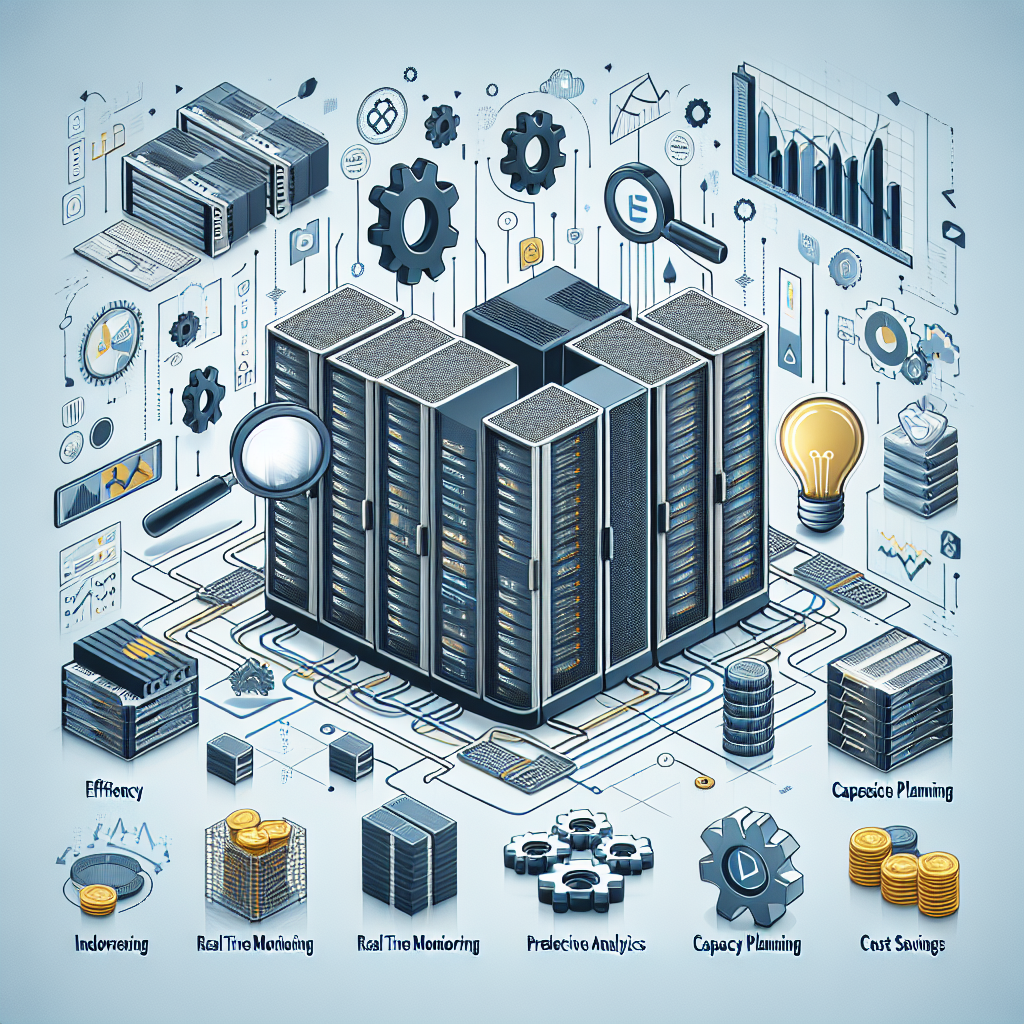
Key Features and Benefits of Implementing a DCIM Solution in Your Data Center
In today’s digital age, data centers play a crucial role in the operation of businesses and organizations. With the increasing complexity and demand for data processing and storage, managing a data center efficiently has become a top priority for IT professionals. This is where Data Center Infrastructure Management (DCIM) solutions come into play.DCIM solutions are software and hardware tools that provide a centralized platform for monitoring, managing, and optimizing the infrastructure of a data center. By integrating various technologies such as sensors, monitoring devices, and automation tools, DCIM solutions offer a wide range of key features and benefits that can help organizations streamline their data center operations and achieve significant cost savings.
One of the key features of implementing a DCIM solution in your data center is real-time monitoring and visibility. DCIM solutions provide a comprehensive view of the data center infrastructure, including power consumption, cooling systems, server performance, and network connectivity. This real-time visibility allows IT professionals to identify and address issues quickly, minimizing downtime and ensuring optimal performance of the data center.
Another key feature of DCIM solutions is capacity planning and optimization. By analyzing data center resources and usage patterns, DCIM solutions help organizations forecast future capacity requirements and optimize resource allocation. This allows businesses to make informed decisions about infrastructure upgrades, equipment deployment, and space utilization, leading to cost savings and improved efficiency.
In addition to monitoring and capacity planning, DCIM solutions also offer automation and control capabilities. By automating routine tasks such as server provisioning, power management, and cooling adjustments, DCIM solutions help organizations reduce manual intervention and human errors, leading to improved reliability and operational efficiency.
Furthermore, DCIM solutions provide comprehensive reporting and analytics tools that enable organizations to track key performance indicators, identify trends, and make data-driven decisions. By analyzing data center metrics such as energy consumption, cooling efficiency, and server utilization, IT professionals can optimize the performance of the data center and reduce operational costs.
Overall, implementing a DCIM solution in your data center can bring a wide range of benefits, including improved visibility, capacity planning, automation, and cost savings. By leveraging the key features of DCIM solutions, organizations can streamline their data center operations, enhance performance, and achieve greater efficiency in managing their infrastructure. With the increasing complexity and demands of modern data centers, DCIM solutions have become essential tools for IT professionals looking to optimize their data center operations and stay ahead of the competition.
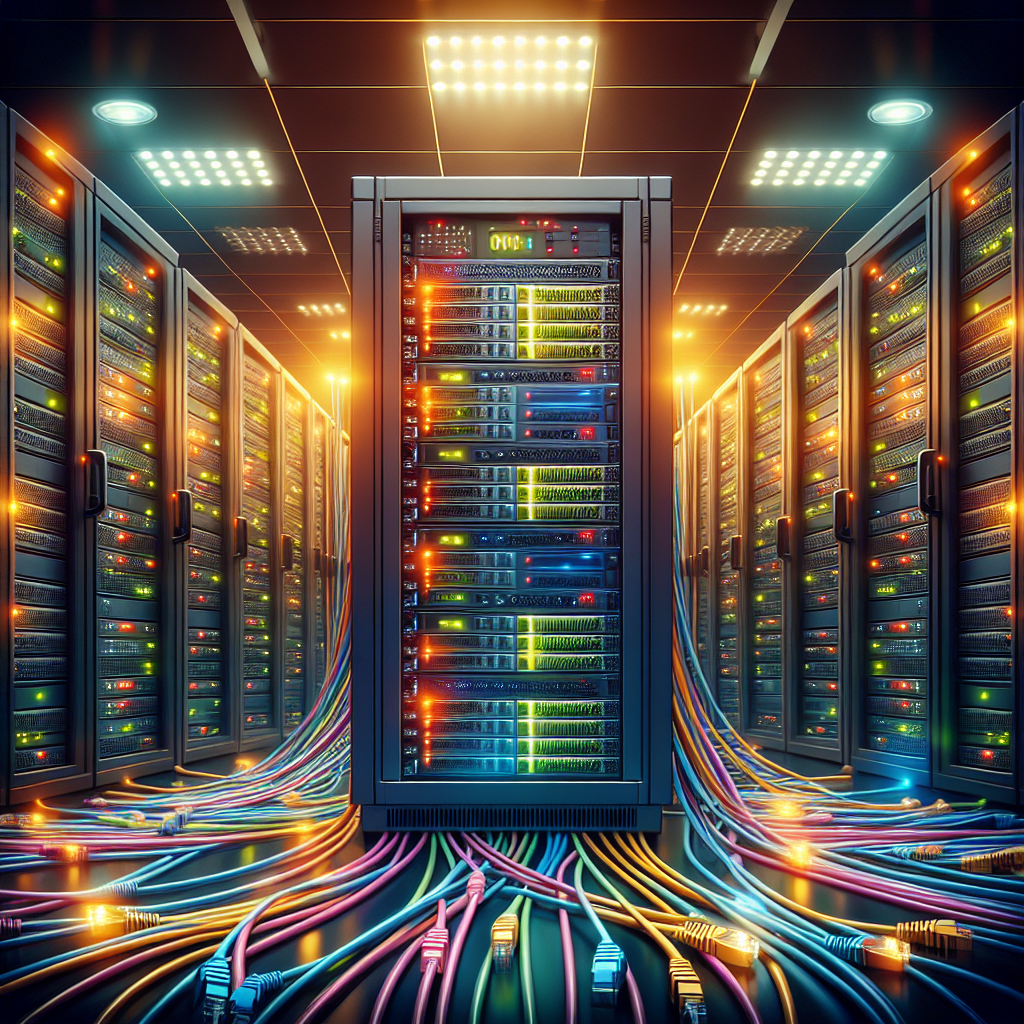
How to Choose the Right Cabling Solution for Your Data Center
When it comes to setting up a data center, one of the most important decisions you will need to make is choosing the right cabling solution. The cabling in your data center is crucial for ensuring that your network runs smoothly and efficiently. With so many options available, it can be overwhelming to decide which cabling solution is best for your specific needs. Here are some tips to help you choose the right cabling solution for your data center.The first step in choosing the right cabling solution is to assess your current and future needs. Consider the size of your data center, the number of devices that will be connected, and the bandwidth requirements of your network. This will help you determine the type and amount of cabling that you will need.
Next, consider the types of cabling available. There are several different types of cabling, including copper, fiber optic, and coaxial. Copper cabling is the most common type of cabling used in data centers, as it is affordable and easy to install. Fiber optic cabling is more expensive but offers higher bandwidth and faster speeds. Coaxial cabling is also an option, although it is less commonly used in data centers.
Another factor to consider when choosing a cabling solution is the distance that the cables will need to cover. If you have a large data center with long cable runs, fiber optic cabling may be the best option, as it can transmit data over longer distances without signal degradation. Copper cabling is better suited for shorter cable runs.
You should also consider the scalability of the cabling solution. As your data center grows and evolves, you will need to add more devices and expand your network. Make sure that the cabling solution you choose can easily accommodate future growth without the need for major upgrades or replacements.
Finally, consider the reliability and performance of the cabling solution. Look for cabling that is durable and can withstand the demands of a data center environment. Make sure that the cabling solution you choose meets industry standards for performance and reliability.
In conclusion, choosing the right cabling solution for your data center is a crucial decision that can impact the efficiency and performance of your network. By considering your current and future needs, the types of cabling available, the distance the cables will need to cover, scalability, and reliability, you can make an informed decision that will ensure the success of your data center.
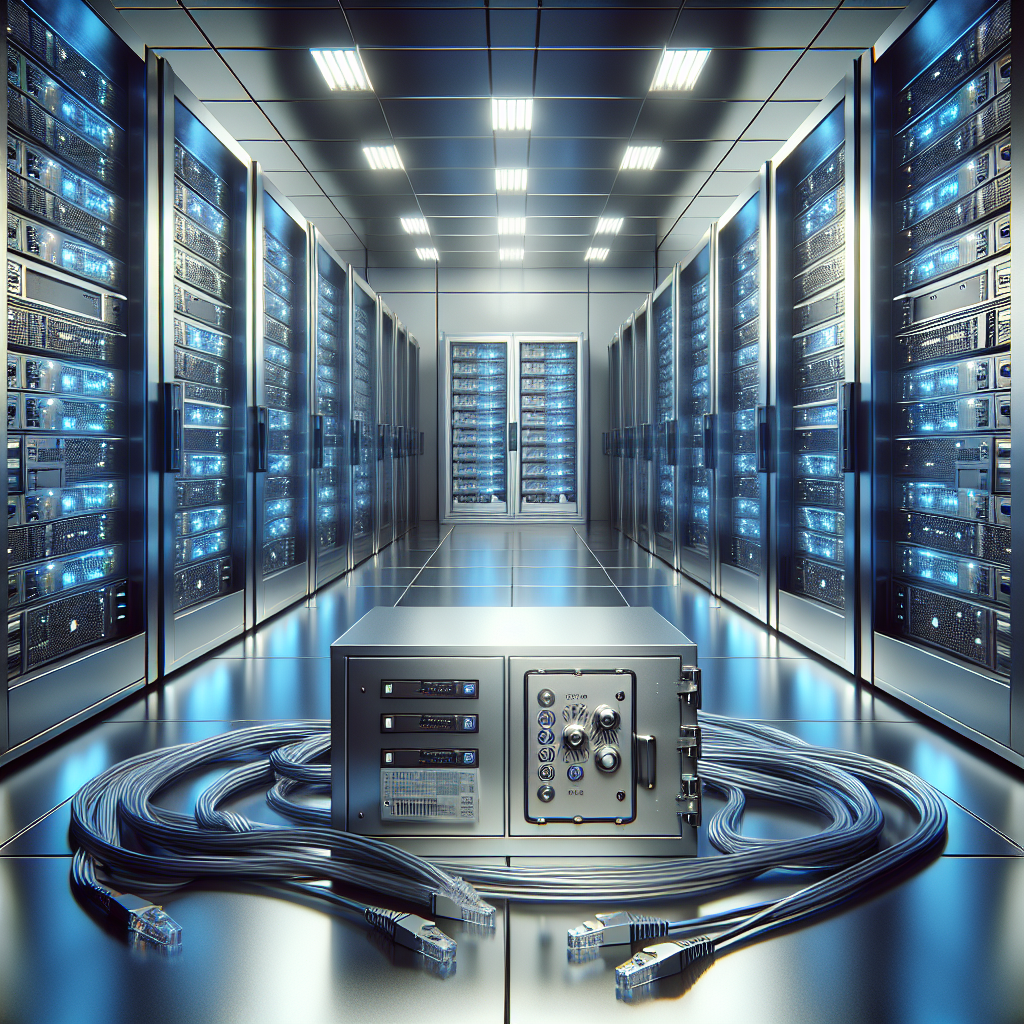
How to Choose the Right Data Center Backup and Recovery Solution
In today’s digital world, data is king. With businesses relying more and more on digital information, the importance of data backup and recovery solutions cannot be overstated. In the event of a data loss or disaster, having a reliable backup and recovery solution in place can mean the difference between a minor inconvenience and a catastrophic loss of valuable information.When it comes to choosing the right data center backup and recovery solution for your business, there are several important factors to consider. Here are some tips to help you make an informed decision:
1. Identify your data backup needs: Before you start looking for a backup and recovery solution, it’s important to assess your data backup needs. Consider the volume of data you need to backup, the frequency of backups, and the level of data protection required. This will help you narrow down your options and choose a solution that best fits your specific requirements.
2. Evaluate scalability and flexibility: As your business grows, so will your data storage needs. Make sure the backup and recovery solution you choose is scalable and flexible enough to accommodate future growth. Look for a solution that can easily expand to meet your changing requirements without requiring a complete overhaul of your existing infrastructure.
3. Consider data security: Data security is a top priority for businesses of all sizes. When choosing a backup and recovery solution, make sure it offers robust security features such as encryption, access controls, and data isolation. This will help protect your sensitive information from unauthorized access and ensure compliance with industry regulations.
4. Check reliability and performance: A backup and recovery solution is only as good as its reliability and performance. Look for a solution that offers high availability, fast backup speeds, and quick recovery times. Test the solution under real-world conditions to ensure it meets your performance expectations and can reliably protect your data in the event of a disaster.
5. Consider cost and ROI: Cost is always a consideration when choosing a backup and recovery solution. Compare the upfront costs, ongoing maintenance fees, and potential ROI of different solutions to determine which one offers the best value for your business. Keep in mind that investing in a reliable backup and recovery solution now can save you time and money in the long run by preventing data loss and downtime.
In conclusion, choosing the right data center backup and recovery solution is a critical decision for any business. By considering factors such as data backup needs, scalability, security, reliability, performance, and cost, you can select a solution that meets your requirements and provides peace of mind knowing that your valuable data is protected. Remember to regularly review and update your backup and recovery strategy to ensure it continues to meet the evolving needs of your business.

Future-proofing Your Data Center with the Right Generator Solution
In today’s fast-paced digital world, data centers play a critical role in storing and processing vast amounts of information. As businesses continue to rely on data centers for their operations, it is essential to future-proof these facilities to ensure they can meet the growing demands of tomorrow.One critical component of future-proofing a data center is ensuring it has the right generator solution in place. In the event of a power outage, a generator can provide backup power to keep the data center up and running, preventing costly downtime and data loss.
When selecting a generator solution for a data center, there are several factors to consider. First and foremost, it is essential to choose a generator that can meet the power requirements of the facility. Data centers typically have high power demands, so the generator must be able to provide enough power to keep the servers and other critical equipment running smoothly.
In addition to power capacity, reliability is another crucial factor to consider when choosing a generator solution. Data centers cannot afford to have their backup power fail in a time of need, so it is essential to select a generator from a reputable manufacturer with a proven track record of reliability.
Another important consideration is fuel efficiency. Data centers can consume a significant amount of fuel, so it is essential to choose a generator that is fuel-efficient to minimize operating costs. Additionally, it is crucial to consider the availability of fuel sources in the event of an extended power outage.
Lastly, it is essential to consider the scalability of the generator solution. As data centers grow and expand, their power requirements may increase, so it is essential to choose a generator solution that can easily be scaled up to meet these growing demands.
Overall, future-proofing a data center with the right generator solution is crucial to ensure the facility can continue to operate smoothly and efficiently in the face of power outages. By carefully considering factors such as power capacity, reliability, fuel efficiency, and scalability, data center operators can select a generator solution that meets their needs both now and in the future.
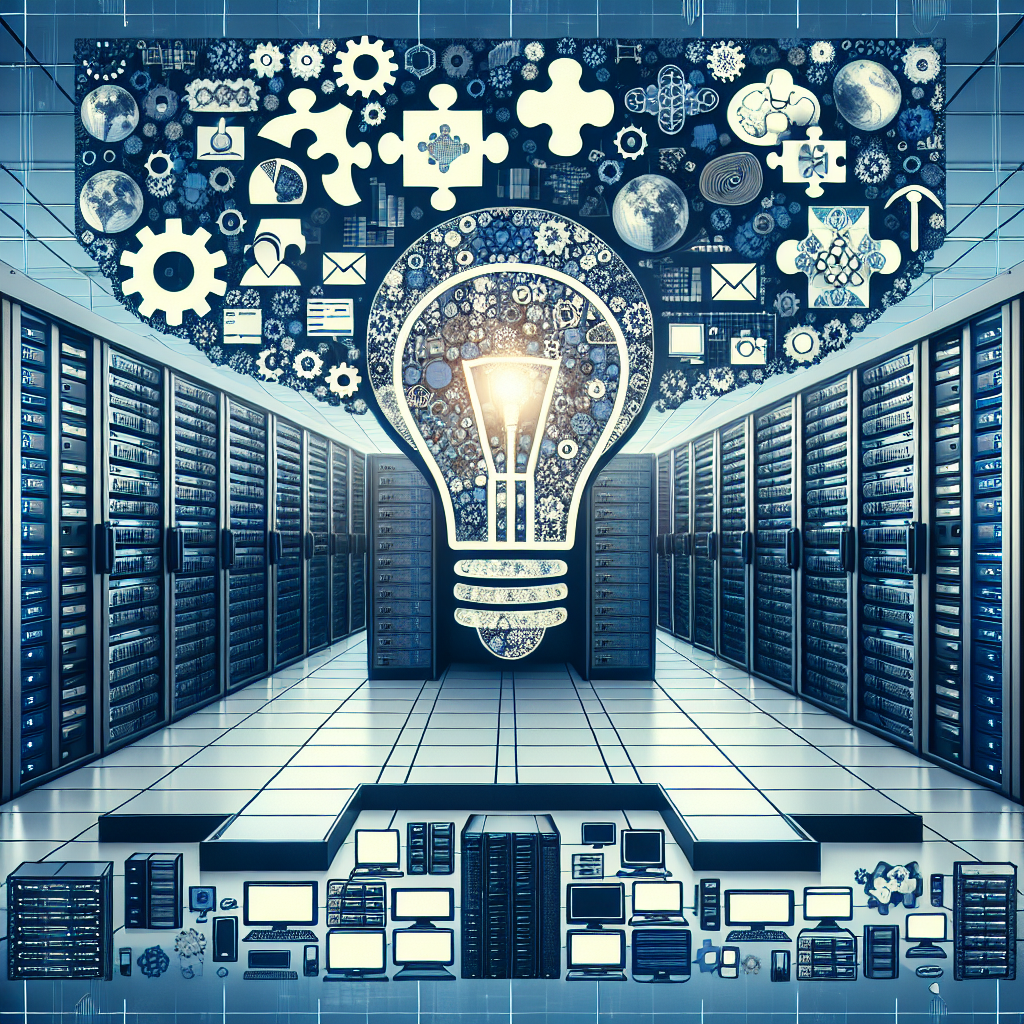
Choosing the Right Database Solution for Your Data Center Needs
In today’s digital age, data is king. From customer information to sales data, companies rely on vast amounts of data to make informed decisions and drive their business forward. With the exponential growth of data, choosing the right database solution for your data center needs has become more important than ever.There are a variety of database solutions available on the market, each catering to different needs and requirements. From traditional relational databases to NoSQL databases, the options can be overwhelming. So, how do you choose the right database solution for your data center needs?
The first step in choosing the right database solution is to assess your specific requirements. Consider the volume of data you need to store, the speed at which you need to access and query the data, and the level of security and reliability required. Understanding your specific needs will help narrow down the options and guide your decision-making process.
If you require a database solution that can handle a large volume of structured data and complex queries, a traditional relational database such as MySQL or PostgreSQL may be the best fit. These databases are known for their reliability, data integrity, and support for complex transactions.
On the other hand, if you need to store and analyze unstructured data such as social media posts or sensor data, a NoSQL database like MongoDB or Cassandra may be more suitable. NoSQL databases are designed to handle large volumes of data and provide flexible data models, making them ideal for big data applications.
In addition to considering your specific requirements, it’s also important to evaluate the scalability and performance of the database solution. As your data grows, you’ll need a database solution that can scale with your business. Look for a database solution that offers horizontal scalability, allowing you to add more servers to handle increased workload.
Performance is another key factor to consider when choosing a database solution. Look for a database solution that offers high performance and low latency, ensuring fast access to your data. Consider factors such as indexing, caching, and query optimization when evaluating the performance of a database solution.
Lastly, consider the cost and licensing implications of the database solution. Some database solutions are open source and free to use, while others may require a license fee or subscription. Consider your budget and long-term costs when choosing a database solution for your data center needs.
In conclusion, choosing the right database solution for your data center needs requires careful consideration of your specific requirements, scalability, performance, and cost. By evaluating these factors and conducting thorough research, you can choose a database solution that meets your needs and helps drive your business forward.
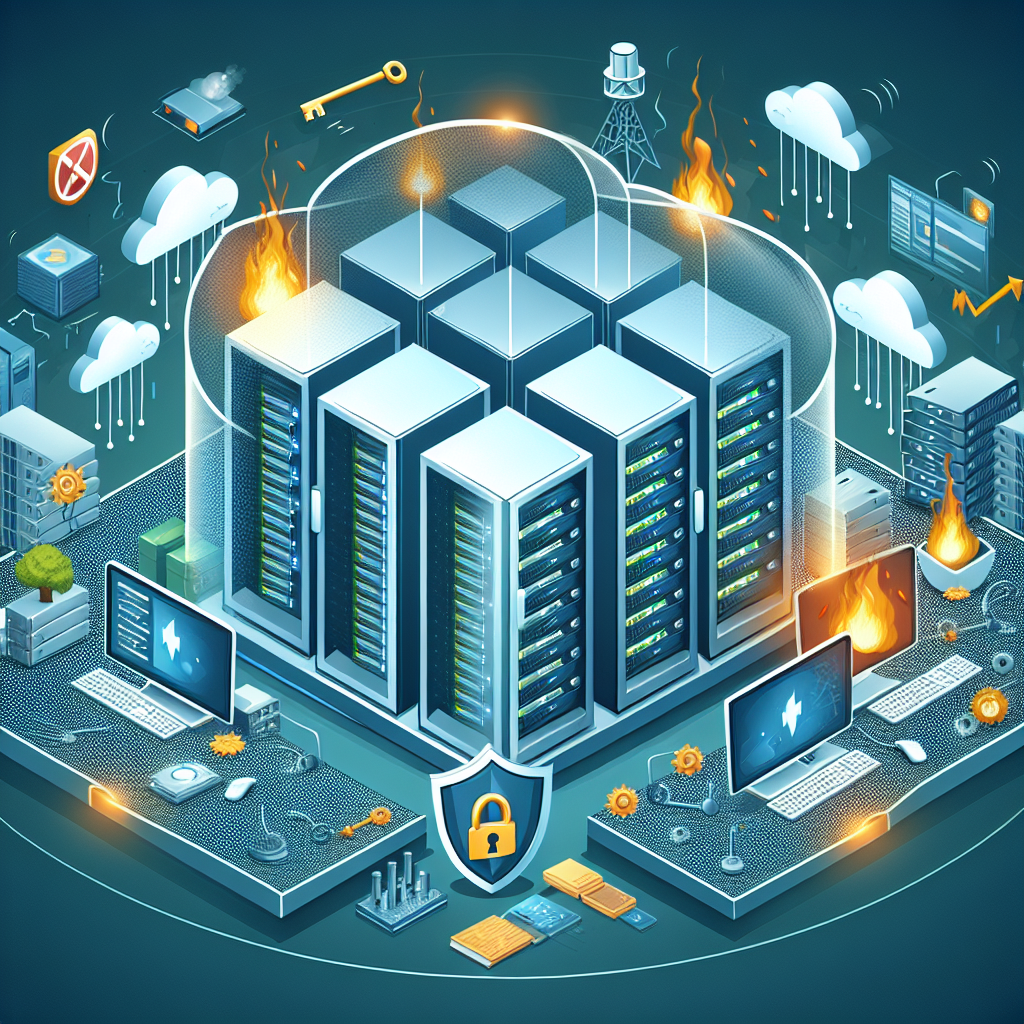
Data Center Disaster Recovery: Key Considerations for Choosing the Right Solution
Data centers are the backbone of modern business operations, housing critical IT infrastructure and data that keeps organizations running smoothly. However, as data centers become increasingly complex and interconnected, the risk of disasters such as hardware failure, natural disasters, cyberattacks, and human error also increases. To mitigate these risks and ensure business continuity, organizations must have a robust disaster recovery plan in place.Choosing the right disaster recovery solution for your data center is crucial for minimizing downtime, protecting sensitive data, and maintaining customer trust. With so many options available, it can be overwhelming to determine the best fit for your organization. Here are some key considerations to keep in mind when selecting a data center disaster recovery solution:
1. RTO and RPO: Recovery Time Objective (RTO) and Recovery Point Objective (RPO) are two critical metrics that determine how quickly your systems can be restored and how much data loss is acceptable in the event of a disaster. Make sure to align these metrics with your business requirements and choose a solution that can meet your RTO and RPO targets.
2. Scalability: Your disaster recovery solution should be able to scale with your organization’s growing data needs. Consider solutions that offer flexibility and scalability to accommodate future growth without compromising performance.
3. Data replication: Replicating data to a secondary site or cloud environment is essential for ensuring data availability and redundancy. Choose a solution that offers real-time or near-real-time data replication to minimize data loss in the event of a disaster.
4. Security: Data center disaster recovery solutions must prioritize data security to protect sensitive information from cyber threats and unauthorized access. Look for solutions that offer encryption, access controls, and compliance with industry regulations.
5. Testing and validation: Regular testing and validation of your disaster recovery plan are crucial to ensure its effectiveness in a real-world scenario. Choose a solution that allows for easy testing and validation of your recovery procedures to identify and address any weaknesses before a disaster occurs.
6. Cost: Consider the cost implications of different disaster recovery solutions, including upfront costs, ongoing maintenance, and potential savings from reduced downtime. Choose a solution that provides a balance between cost-effectiveness and the level of protection required for your organization.
7. Support and expertise: Select a disaster recovery solution provider that offers reliable support and expertise to assist you in implementing and maintaining your disaster recovery plan. Look for providers with a proven track record of successful disaster recovery implementations and a commitment to customer satisfaction.
By considering these key factors when choosing a data center disaster recovery solution, organizations can ensure they have the right plan in place to protect their critical IT infrastructure and data. With a well-thought-out disaster recovery strategy, organizations can minimize the impact of disasters on their operations and maintain business continuity in the face of unforeseen events.
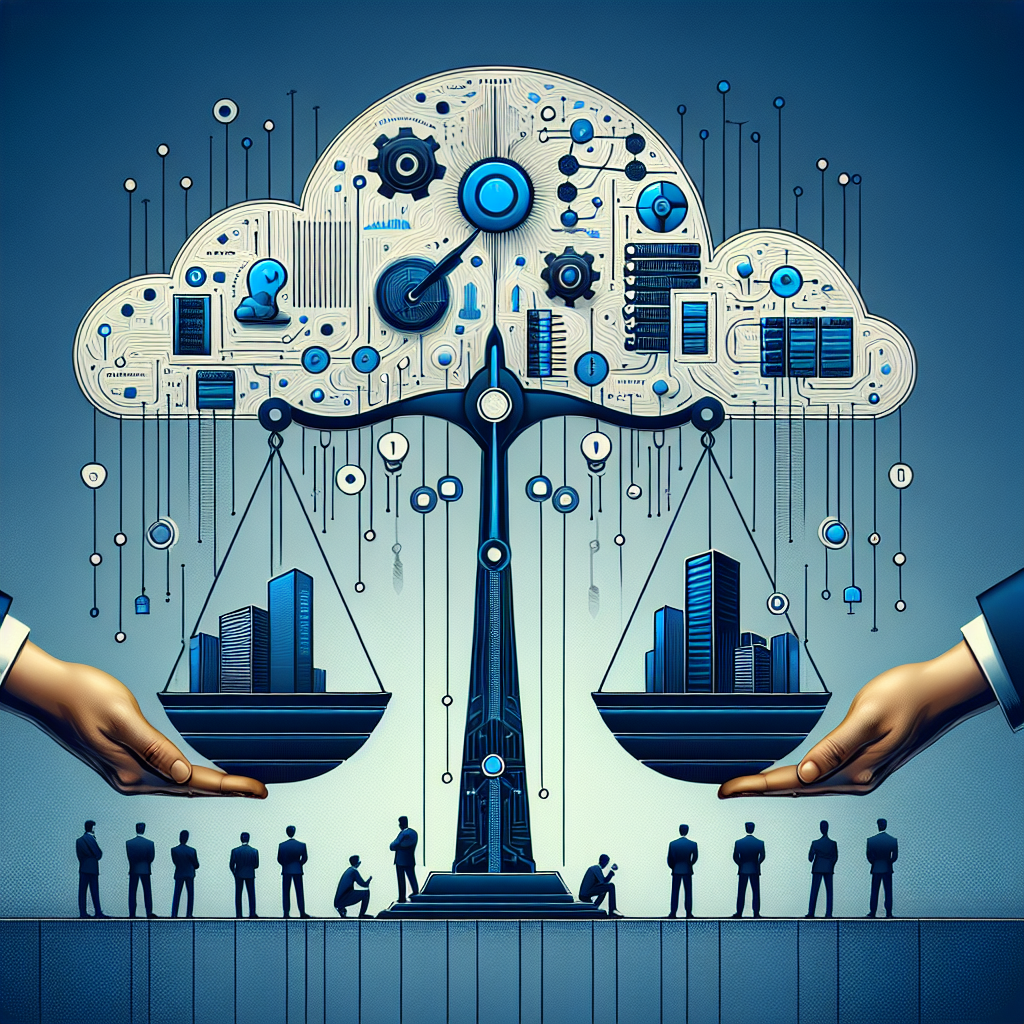
A Comprehensive Guide to Choosing the Right DCIM Solution for Your Data Center
As data centers become increasingly complex and critical to businesses, the need for a Data Center Infrastructure Management (DCIM) solution has never been greater. DCIM solutions offer a way to monitor, manage, and optimize the performance of data center infrastructure, ultimately improving efficiency and reducing costs. However, with so many options on the market, choosing the right DCIM solution can be a daunting task. This comprehensive guide will help you navigate the selection process and find the DCIM solution that best meets your needs.Assess Your Needs
The first step in choosing the right DCIM solution is to assess your needs. Start by identifying the key challenges and pain points in your data center. Are you struggling with capacity planning, power management, cooling optimization, or asset tracking? Do you need real-time monitoring and alerting capabilities? By understanding your specific requirements, you can narrow down your choices and focus on solutions that address your most critical needs.
Consider Scalability and Flexibility
As your data center grows and evolves, your DCIM solution needs to be able to scale with it. Look for a solution that is flexible and can adapt to changes in your infrastructure over time. Consider whether the solution offers integration with other systems and applications, as well as the ability to customize and extend functionality as needed. Scalability and flexibility are key factors to consider when choosing a DCIM solution that will meet your long-term needs.
Evaluate Ease of Use and User Interface
Another important consideration when choosing a DCIM solution is ease of use and the user interface. The solution should be intuitive and easy to navigate, allowing users to quickly access the information they need and perform tasks efficiently. Look for a solution with a clean and user-friendly interface, as well as customizable dashboards and reports that provide the insights you need to make informed decisions.
Check for Integration and Compatibility
When selecting a DCIM solution, it is essential to consider its compatibility with your existing infrastructure and systems. Look for a solution that can seamlessly integrate with your data center equipment, monitoring tools, and management systems. Compatibility with industry standards such as SNMP, BACnet, and Modbus is also important to ensure smooth integration with third-party devices and applications. Make sure to thoroughly evaluate the compatibility and integration capabilities of a DCIM solution before making a decision.
Consider Support and Training
Finally, consider the level of support and training offered by the DCIM solution provider. A robust support system is crucial for ensuring the successful implementation and ongoing operation of the solution. Look for a provider that offers comprehensive training programs, documentation, and technical support to help you get the most out of your DCIM solution. Additionally, consider the provider’s track record of customer satisfaction and reliability to ensure that you will receive the support you need when you need it.
In conclusion, choosing the right DCIM solution for your data center is a critical decision that can have a significant impact on your organization’s efficiency and performance. By assessing your needs, considering scalability and flexibility, evaluating ease of use and user interface, checking for integration and compatibility, and considering support and training, you can make an informed decision that will help you optimize your data center infrastructure and achieve your business goals. With the right DCIM solution in place, you can effectively monitor, manage, and optimize your data center operations, ultimately driving greater efficiency and cost savings for your organization.
